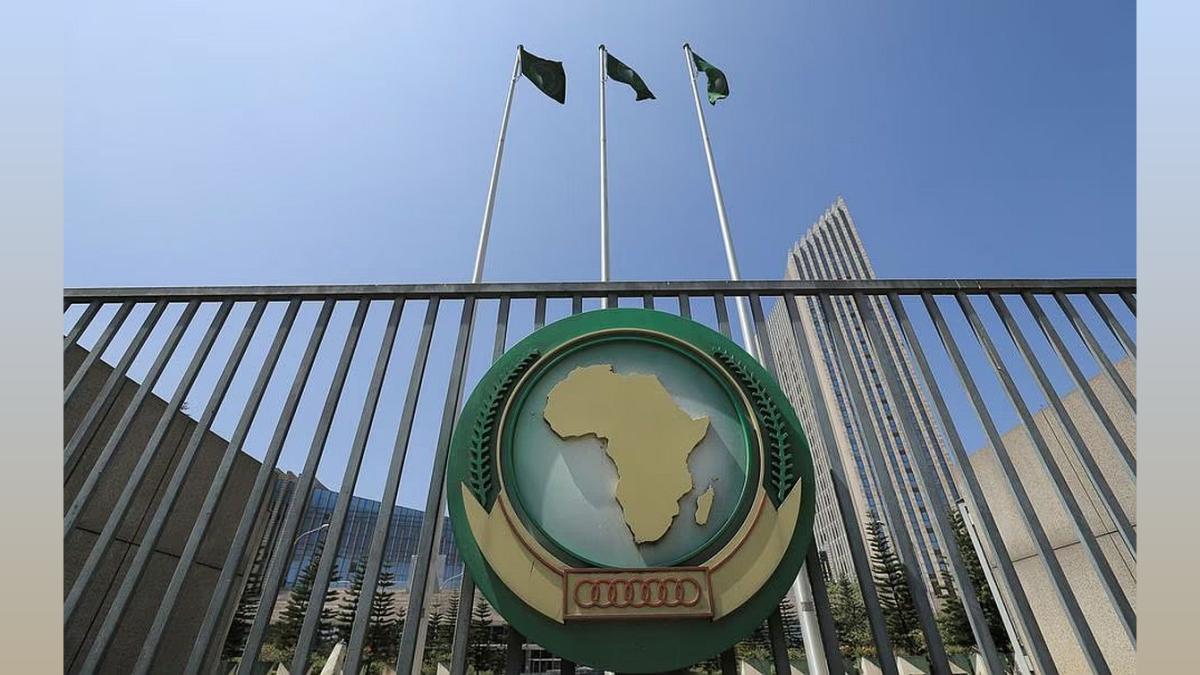South Africa Challenges EU Citrus Import Rules at WTO
South Africa has taken the EU's citrus import regulations to the WTO, citing 'unscientific and discriminatory' measures that harm the South African citrus industry.

Photograph: Tiksa Negeri/Reuters
Johannesburg, June 28 (PTI) South Africa has asked the Dispute Settlement Body (DSB) of the World Trade Organisation (WTO) to consider what the country called unscientific and discriminatory measures placed on citrus imported from the African nation by the European Union (EU).
The regulations are being challenged by the South African government to protect the livelihoods of tens of thousands of people in the local citrus industry, said a joint statement by The Department of Agriculture, Land Reform and Rural Development (DALRRD), the Department of Trade, Industry and Competition (DTIC) and the Citrus Growers Association of Southern Africa (CGA).
Currently, South African citrus growers are spending billions of rands per year to comply with measures that the industry considers unscientific and unnecessarily restrictive, as South Africa already has an effective world-class risk management system that ensures safe citrus exports. Emerging citrus growers are especially hit hard by the EU measures, the statement added.
South Africa earlier this week requested the establishment of two panels at a meeting of the Dispute Settlement Body (DSB) of the World Trade Organisation (WTO) to address the EU's regulations on two separate plant health issues -- Citrus Black Spot and False Codling Moth.
The bodies said this was the first time that South Africa has taken a dispute to the WTO because a request by it to the EU for consultations had not produced any results.
They said that besides the EU measures not being based on scientific principles and maintained without sufficient scientific evidence, the EU has failed to apply the measures in a uniform, impartial and reasonable manner.
The measures are more trade-restrictive than required to achieve protection, and there are reasonably available alternatives which are technically and economically feasible, that would achieve protection in a significantly less trade-restrictive manner.
Last year we exported 36 per cent of all our citrus to the EU. That shows what an important market it is for our growers. It is the very foundation of citrus profitability in South Africa. Should the EU continue with the implementation of these measures, or intensify them in any way, the profitability of hundreds of growers will be negatively affected and the industry will suffer severe revenue and job losses, they said.
The citrus industry supports 140,000 jobs at farm level alone. The government is acting to safeguard these livelihoods and the central role the citrus industry plays in so many of our rural communities," explained DALRRD Director-General Mooketsa Ramasodi.
Justin Chadwick, CEO of the CGA, said the action was also potentially good news for the European consumers.
Their orange prices last summer were at an all-time high. However, if their supply is unfettered, consumers will benefit, Chadwick said.
South Africa is the world's second-largest exporter of citrus, with its exceptional quality making it sought-after internationally.
The local citrus industry is currently entering its peak winter export season with oranges heading to the ports. It is estimated that South Africa will export a total of 170 million 15 kg cartons this year.
The regulations are being challenged by the South African government to protect the livelihoods of tens of thousands of people in the local citrus industry, said a joint statement by The Department of Agriculture, Land Reform and Rural Development (DALRRD), the Department of Trade, Industry and Competition (DTIC) and the Citrus Growers Association of Southern Africa (CGA).
Currently, South African citrus growers are spending billions of rands per year to comply with measures that the industry considers unscientific and unnecessarily restrictive, as South Africa already has an effective world-class risk management system that ensures safe citrus exports. Emerging citrus growers are especially hit hard by the EU measures, the statement added.
South Africa earlier this week requested the establishment of two panels at a meeting of the Dispute Settlement Body (DSB) of the World Trade Organisation (WTO) to address the EU's regulations on two separate plant health issues -- Citrus Black Spot and False Codling Moth.
The bodies said this was the first time that South Africa has taken a dispute to the WTO because a request by it to the EU for consultations had not produced any results.
They said that besides the EU measures not being based on scientific principles and maintained without sufficient scientific evidence, the EU has failed to apply the measures in a uniform, impartial and reasonable manner.
The measures are more trade-restrictive than required to achieve protection, and there are reasonably available alternatives which are technically and economically feasible, that would achieve protection in a significantly less trade-restrictive manner.
Last year we exported 36 per cent of all our citrus to the EU. That shows what an important market it is for our growers. It is the very foundation of citrus profitability in South Africa. Should the EU continue with the implementation of these measures, or intensify them in any way, the profitability of hundreds of growers will be negatively affected and the industry will suffer severe revenue and job losses, they said.
The citrus industry supports 140,000 jobs at farm level alone. The government is acting to safeguard these livelihoods and the central role the citrus industry plays in so many of our rural communities," explained DALRRD Director-General Mooketsa Ramasodi.
Justin Chadwick, CEO of the CGA, said the action was also potentially good news for the European consumers.
Their orange prices last summer were at an all-time high. However, if their supply is unfettered, consumers will benefit, Chadwick said.
South Africa is the world's second-largest exporter of citrus, with its exceptional quality making it sought-after internationally.
The local citrus industry is currently entering its peak winter export season with oranges heading to the ports. It is estimated that South Africa will export a total of 170 million 15 kg cartons this year.
You May Like To Read
TODAY'S MOST TRADED COMPANIES
- Company Name
- Price
- Volume
- Vodafone-Idea-L
- 11.25 (+ 4.85)
- 124593459
- Mangalam-Industrial
- 0.90 (+ 4.65)
- 43018654
- Welcure-Drugs-and
- 0.50 (+ 4.17)
- 39983710
- Alstone-Textiles
- 0.29 ( -3.33)
- 27516634
- Murae-Organisor
- 0.27 (+ 3.85)
- 26520405



